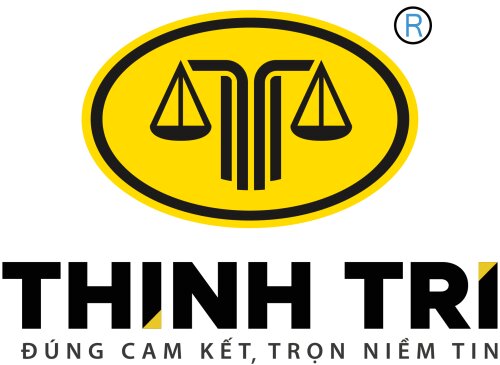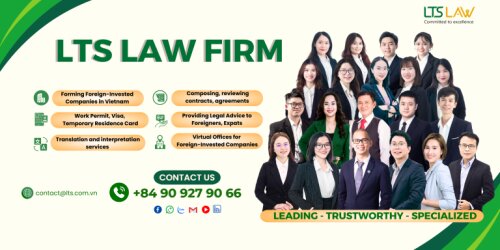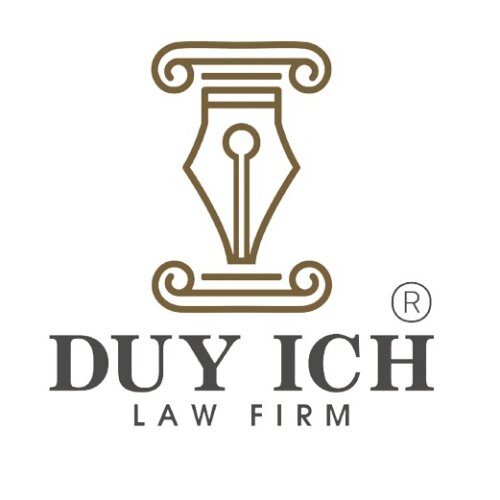![[DDC] DONG DU INTERNATIONAL ACCOUNTING, TAXES & LEGAL CONSULTING GROUP HCMC VIETNAM](https://lawzana.com/storage/firms/2690/17617306202399.jpg)
Best Debt & Collection Lawyers in Vietnam
Share your needs with us, get contacted by law firms.
Free. Takes 2 min.
Or refine your search by selecting a city:
List of the best lawyers in Vietnam
![[DDC] DONG DU INTERNATIONAL ACCOUNTING, TAXES & LEGAL CONSULTING GROUP HCMC VIETNAM](https://lawzana.com/storage/firms/2690/17617306202399.jpg)
About Debt & Collection Law in Vietnam
Debt and collection laws in Vietnam are crafted to balance the interests of creditors and debtors, ensuring that the process is fair and transparent. Due to the country's rapidly growing economy, the demand for effective debt collection has increased, which led to the establishment of comprehensive legal frameworks. These laws regulate both the recovery methods employed by creditors and the legal protections available to debtors. It is critical for both parties to understand their rights and obligations under Vietnamese law to navigate debt collection processes amicably and legally.
Why You May Need a Lawyer
There are numerous situations in which you may require legal assistance in debt and collection matters in Vietnam. Common scenarios include:
- Difficulty enforcing a debt agreement or promissory note.
- Facing unfair or illegal debt collection practices.
- Negotiating settlements for outstanding debts.
- Challenging the validity of a claimed debt.
- Needing representation in court for debt-related disputes.
- Understanding your rights and obligations under Vietnamese debt laws.
- Requiring assistance in drafting or reviewing contracts involving credit or loans.
Legal expertise can guide you through the complexities of the law, helping you protect your rights and interests.
Local Laws Overview
Debt and collection in Vietnam are primarily regulated by the Civil Code and related bylaws. Here are some key aspects:
- The Civil Code outlines the contractual obligations between debtors and creditors, emphasizing the importance of written agreements.
- The Law on Credit Institutions specifies procedures for banks and financial institutions in handling overdue debts.
- Vietnamese law prohibits abusive debt collection practices, such as harassment or threats, ensuring debtor protection.
- Statute of limitations: Generally, claims for unpaid debts must be made within a specified period, typically 2-3 years, depending on the nature of the contract.
- Arbitration and mediation are encouraged as alternative dispute resolution methods before approaching the courts.
Frequently Asked Questions
What should I do if I receive a demand letter for a debt I don't recognize?
If you receive a demand letter for an unrecognized debt, it's important to first verify the validity of the claim. Consult with a lawyer to ensure that you're not being pursued for a fraudulent claim.
Can debt collectors contact me at work?
Under Vietnamese law, debt collectors must respect your privacy and are not allowed to use methods of contact that could be deemed as harassment, including persistent calls to your workplace.
What legal recourse do I have if a debt collector is harassing me?
You can report harassment to the local authorities and seek a protective order. A lawyer can also assist in filing a complaint with relevant consumer protection agencies.
How does the statute of limitations affect debt collection?
The statute of limitations establishes a timeframe within which legal action must be taken. If a debt collector attempts to collect a debt outside this period, the action is typically barred.
Is mediation a viable option for resolving debt disputes?
Yes, mediation is not only encouraged but often a required step before litigation. It provides a platform for amicable settlement.
Can I negotiate a payment plan with my creditor?
Negotiating a payment plan can be a mutually beneficial option for both parties. Often, creditors are open to restructuring debt to ensure repayment.
What happens if I default on a loan secured by collateral?
If you default on a secured loan, the lender may have the right to seize the collateral, but they must follow legal procedures. It's advisable to seek legal counsel in such cases.
Are verbal agreements for loans enforceable?
While verbal agreements can be legally recognized, written agreements are strongly recommended for enforceability and evidence purposes.
What is the role of a collection agency?
Collection agencies act on behalf of creditors to recover debts. They must comply with legal standards and are subject to regulations aimed at protecting debtor rights.
Can a debt be challenged in court?
Yes, if there is a legitimate reason to dispute a debt, such as discrepancies in the debt amount or credentials of the claimant, you can challenge it in court with the help of a lawyer.
Additional Resources
For those seeking further assistance or legal advice in debt and collection matters in Vietnam, consider reaching out to the following resources:
- The Vietnam Bar Federation for qualified legal professionals specializing in debt collection.
- The Ministry of Justice for understanding legal reforms and consumer protection laws.
- Local legal aid centers for free or low-cost legal services and advice.
- Consumer protection agencies for grievances related to unfair debt collection practices.
Next Steps
If you require legal assistance in debt and collection matters, consider the following steps:
- Gather all relevant documents related to your debt, including contracts, letters, and payment records.
- Consult with a qualified lawyer to assess your situation and explore your options.
- Discuss potential strategies such as negotiation, mediation, or legal action, depending on your circumstances.
- Ensure you are well informed about your rights and the legal process to make educated decisions.
- Contact relevant organizations and resources to provide additional support and guidance.
Acting promptly and informed decisions can significantly impact the outcomes of debt-related issues.
Lawzana helps you find the best lawyers and law firms in Vietnam through a curated and pre-screened list of qualified legal professionals. Our platform offers rankings and detailed profiles of attorneys and law firms, allowing you to compare based on practice areas, including Debt & Collection, experience, and client feedback.
Each profile includes a description of the firm's areas of practice, client reviews, team members and partners, year of establishment, spoken languages, office locations, contact information, social media presence, and any published articles or resources. Most firms on our platform speak English and are experienced in both local and international legal matters.
Get a quote from top-rated law firms in Vietnam — quickly, securely, and without unnecessary hassle.
Disclaimer:
The information provided on this page is for general informational purposes only and does not constitute legal advice. While we strive to ensure the accuracy and relevance of the content, legal information may change over time, and interpretations of the law can vary. You should always consult with a qualified legal professional for advice specific to your situation.
We disclaim all liability for actions taken or not taken based on the content of this page. If you believe any information is incorrect or outdated, please contact us, and we will review and update it where appropriate.
Browse debt & collection law firms by city in Vietnam
Refine your search by selecting a city.
















